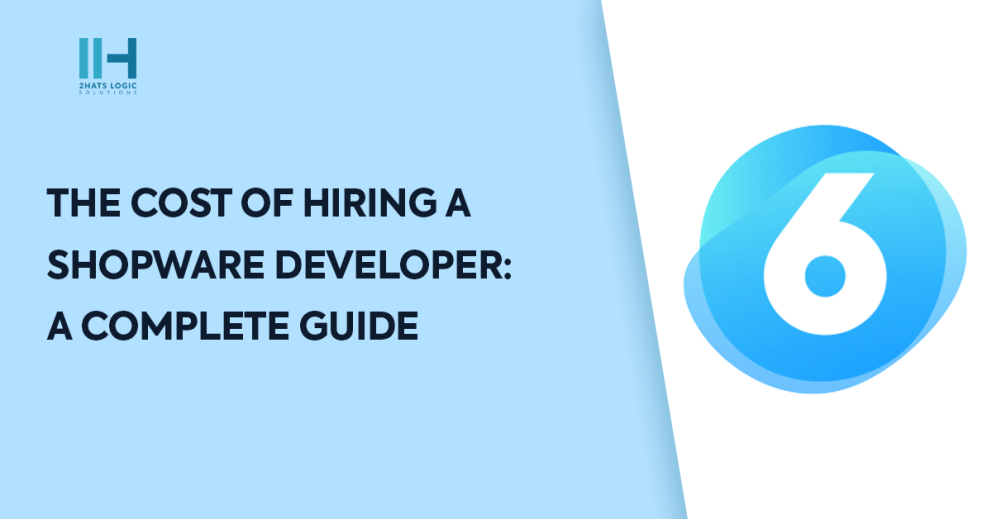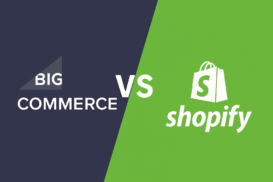Greetings! I'm Aneesh Sreedharan, CEO of 2Hats Logic Solutions. At 2Hats Logic Solutions, we are dedicated to providing technical expertise and resolving your concerns in the world of technology. Our blog page serves as a resource where we share insights and experiences, offering valuable perspectives on your queries.

Would you like to extend your online business and hire a Shopware developer? But amidst the multitude of options and considerations of the factors influencing them, are you confused? Do not be worried, for this is a manual guide that will help you choose the right one.
Cost of Hiring a Shopware Developer
While structuring the cost of hiring Shopware developers, one should take into account several aspects. It is determined by where the developer is situated and their level of experience and skills. Shopware developer rates tend to range from $30 to $200 per hour. The following shows the price range of developers from around the globe.
North America: $20 to $200 per hour
Africa: $5 to $40 per hour
Europe: $15 to $85
Asia: $25 to $50 per hour
South America: $15 to $85 per hour.
Note: These are rough estimates, and the cost may vary depending on your requirements. Moreover, the main criterion for estimating the costs is the scope and level of the project.
A Brief Introduction to Shopware
Shopware is a highly professional e-commerce platform that is known for its flexibility, scalability, and innovative features. Built upon user experience, customization, and ease of use, it enables businesses to generate dynamic online storefronts that reflect their specific business requirements.
Major updates of shopware 2024
Shopware is full of various easy-to-use features that make the shopping process smooth and easy for your customers. Ranging from superior product management features to intelligent content creation capabilities needed by businesses to thrive in a competitive online market field, Its modular architecture is a key element in the seamless addition of more functionalities. As a result, it has improved the scalability and adaptability of the system.
Advanced Product Management Tools
The product catalog handling is very advanced and supports efficient management. Creating products and categorizing them is one of the other features, which include inventory management options, with which businesses can process their product management as efficiently as possible. The interface is very intuitive; it makes product updates and modifications easier, so our customers get a first-class shopping experience.
Intuitive Content Creation Capabilities
The platform provides powerful tools for creating compelling content, including customizable landing pages, blog posts, and multimedia galleries. Businesses can easily showcase their products and brand stories through visually appealing content, driving engagement and conversions. The Shopware Ai Copilot is the Ai tool of the platform which will help the user with various content creation purposes, search by image and .
B2B Functions in both Employee and quota management
This tool is tailor made for complex made structures of allowed for customized role and permission setting. This got an update as now permissions can be adjusted to ensure that the product is confirmed only after the approval of an authorised person. For the B2B quota management the additional features include enhanced communication, comprehensive insight, and addition of products.
Modular Architecture for Scalability
Modular architecture of the platform provides businesses with great opportunities to scale and adapt their e-commerce stores. It may be a matter of embedding new elements, integration of third-party plugins, or customization of existing functions; it offers a very flexible framework for growth. This scalability allows businesses to change the size of their online presence to fit different market demands as well as consumer tastes and preferences as time goes by.
Seamless Integration of Additional Functionalities
This platform can integrate a variety of extra functionalities, including payment gateways, shipping solutions, and marketing tools. Companies can modify their e-commerce ecosystem to fit their individual needs and goals, increasing operation efficiency and resulting in business growth.
Enhanced Customer Experience Features
The optimized shopping journey for clients starts with personalized product recommendations, dynamic pricing options, intuitive search functionality, and smooth checkout processes. An additional feature of the update is spatial commerce which has 3D and VR visualization of products. Due to these features, customers’ satisfaction and loyalty are sustained, thus driving growth and sales.
Key Responsibilities of Shopware Developers
Developers are the architects who bring out the e-commerce platform without any issues. Their knowledge goes beyond the programming level, as they are put in charge of strategic planning and system architecture design for the best results. The following are their few responsibilities:
Customization of Storefronts and Themes
A main responsibility of the developer is to customise storefronts and themes which are suitable for the brand image. They combine their designer talent and technical expertise to roll out aesthetically appealing and user-friendly interfaces that encourage engagement and conversion.
Integration of Third-Party Plugins and Extensions
The third-party plugin and extension integration is linked to functionality amplification and platform enlargement in the growing e-commerce company. Developers carefully insert these plugins to prevent disruptions and instability.
Implementation of Advanced Features
Developers utilize advanced technology by deploying multi-channel selling systems and personalized customer experiences, which are excellent bonuses for the e-commerce experience. They channel the platform’s advanced architecture into releasing advanced solutions that ensure growing shopper choices and market demands.
Continuous monitoring and optimization
The developer’s task is not finished with deployment. They are always in charge of ensuring the availability of the display and security of the pages, discovering downs, and taking the measures they must to enhance the user experience and reduce the risks. Thanks to proactive monitoring and improvement, they ensure that they run steadily and safely in connection with the needs of both sellers and customers.
Tips for Hiring Shopware Developer
With so many development companies, it can be hard to know which one is right for you. But with these tips, searching for the right Shopware partner becomes much easier.
- A certified developer with technical knowledge and practical experience of the platform.
- The developer you choose should be familiar with various project management tools, as these tools enhance the platform’s user-friendliness.
- After deployment, for the platform to stay afloat, there must be regular updates of features and the resolution of glitches, so developers who provide post-deployment services must.
- The communication and cost-effectiveness of the developer are essential, as proper communication along with better service for your budget.
- Analyze the client testimonial and project portfolio of the developer you are hiring, to get a better understanding of their work.
Factors That Affect the Cost of Hiring Shopware Developers
Several factors influence the cost of hiring developers, including:
Developer’s location
This set of figures changes from region to region, and the developers from North America or Western Europe are mostly quite more expensive than those from Asia or Eastern Europe.
Experience and expertise
Experienced developers who have spent lots of time with Shopware make more money per hour than those who just opted for this software.
Project scope and complexity
Generally, for projects that are quite complicated and demand wholesale customization and integration, higher costs are typical of those associated with simple storefront solutions.
Development approach
Regardless of whether you are a by-hour, fixed-price project, or a dedicated team, the chosen development approach affects cost structure and project flexibility.
Conclusion
Hiring a Shopware developer is an essential decision for businesses with e-commerce presence. The knowledge of various factors that must be considered while hiring a developer is important to make informed decisions. Together with the right developer partner and a clear understanding of project requirements, businesses embark on their e-commerce journey with confidence and clarity.
FAQ
Who is a Shopware developer?
An expert in designing and running Shopware stores is a qualified developer. They can connect third-party applications, create new feature-rich plugins and modules, and customize themes and templates with great proficiency.
How to hire the right shopware developer?
It is important to hire a certified Shopware developer with extensive experience. Their soft skills are also essential, in searching for developers who have clear means of communication and a team-player attitude.
How much does it cost to hire a Shopware developer?
Shopware developer rates tend to range from $30 to $200 per hour, depending on their experience, location, and scope of the project.
What could be the duration to complete a project?
The duration to complete a project depends on various factors including the experience of the developer, the complexities of the project and the location of the developer. If any other terms are required, communicate beforehand.

Related Articles






